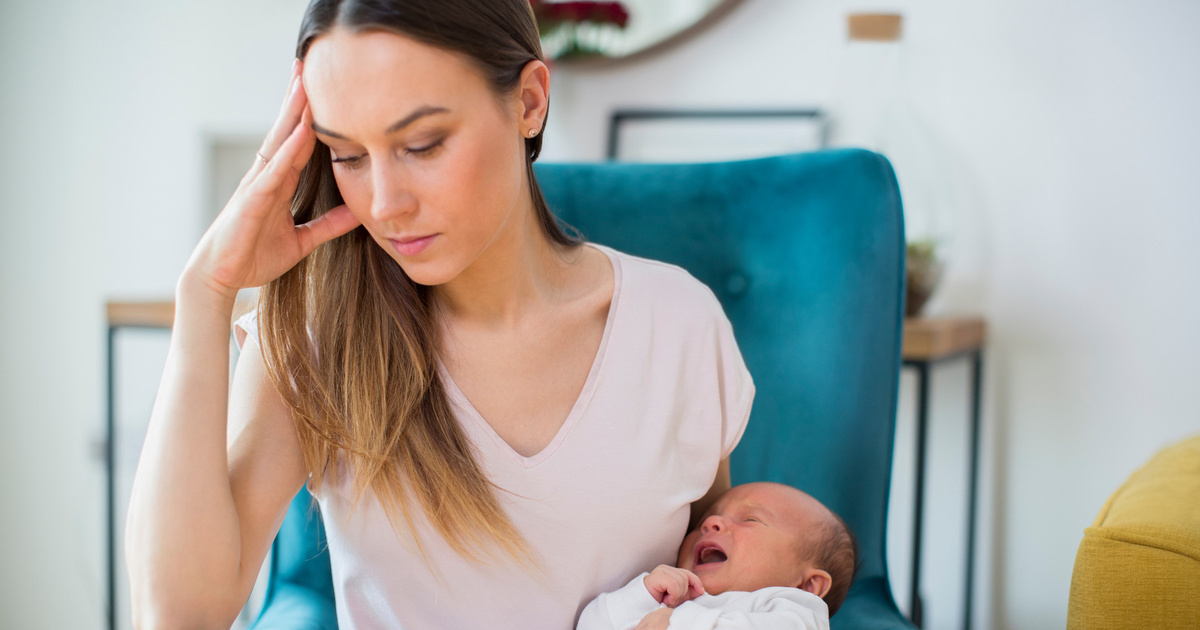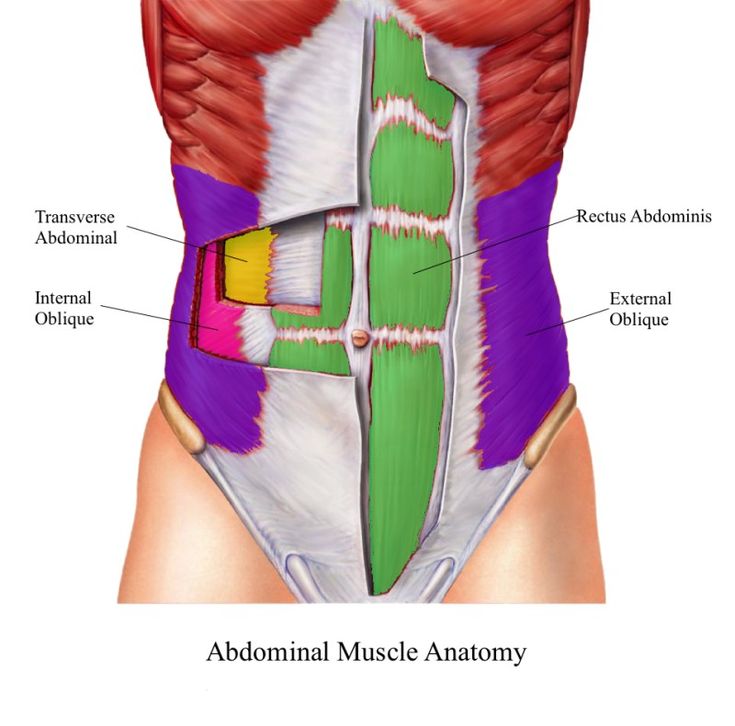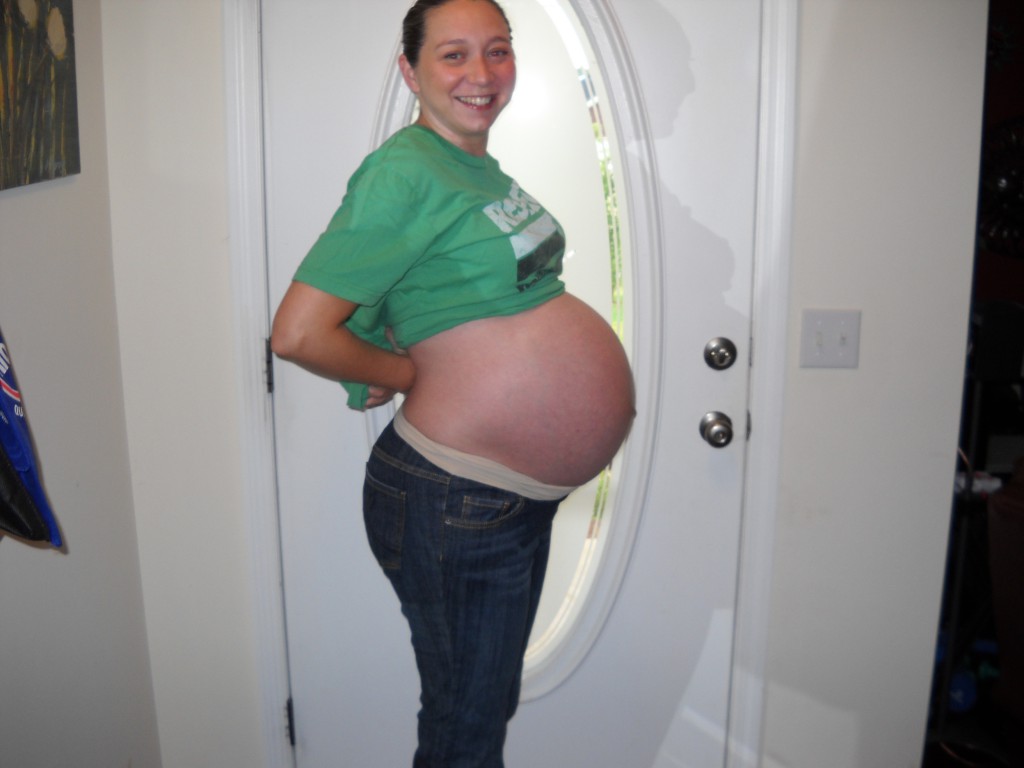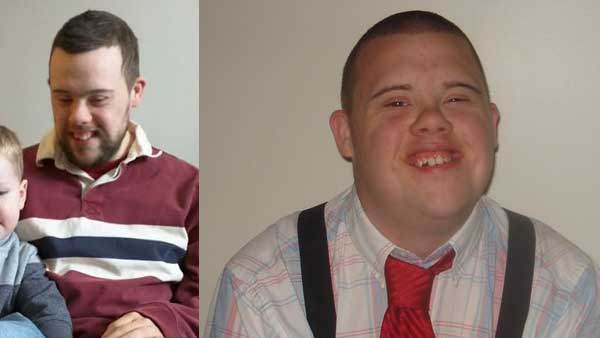Anxiety after pregnancy
Causes, Symptoms, Diagnosis & Treatment
Overview
What is postpartum anxiety?
Postpartum anxiety is when a person experiences severe anxiety after having a baby or becoming a parent (the postpartum period). These anxious feelings are often out of control and take over your thoughts. Some level of worry is expected after welcoming a new baby to your family. But, if you have postpartum anxiety, the worry can be all-consuming or make you feel worried all day and all night. It often causes you to have irrational fears or excessive worries about events that are unlikely to happen. Sometimes the anxiety is related to a specific incident from your past, but other times the worry is general and vague. For example, you may feel a constant sense of danger but be unable to put your finger on the cause.
Postpartum anxiety can occur along with postpartum depression. The conditions are different despite sharing many of the same symptoms.
How common is postpartum anxiety?
Studies have shown that postpartum anxiety affects between 11% and 21% of people designated female at birth. Healthcare providers don't have a specific screening to diagnose postpartum anxiety, so it's hard to determine exactly how many people suffer from the condition. It's often identified during an assessment for postpartum depression (which researchers know more about).
What is the difference between postpartum anxiety and postpartum depression?
If you have postpartum depression, you may experience excessive sadness, frequent crying or feel like you can't take care of yourself or your baby. You may have trouble finding joy in your baby or feel like you aren't capable of being a parent. Postpartum anxiety is associated with excessive worrying, not with sadness. If you feel panicked or overwhelmed with fearful thoughts, you may be suffering from postpartum anxiety.
Many of the signs of postpartum depression overlap with postpartum anxiety like disrupted sleep, heart palpitations or feeling afraid. It's common for people with postpartum depression to experience signs of postpartum anxiety.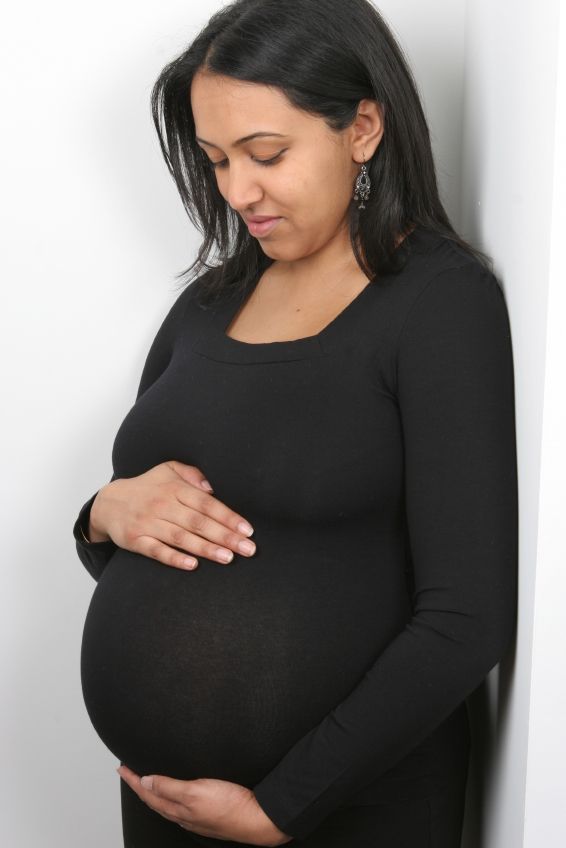 However, not everyone with postpartum anxiety is also depressed.
However, not everyone with postpartum anxiety is also depressed.
It's important to discuss all of your symptoms and feelings with your healthcare provider so they can help you.
How do I know it's postpartum anxiety and not just worrying?
Having a baby or becoming a parent and worrying go hand in hand. Postpartum anxiety is an excessive or extreme worry that feels like it never stops. If your worrying interferes with your ability to calm down and feels like it lasts all day, you may have postpartum anxiety. Postpartum anxiety is also associated with irrational fears or constantly feeling on edge.
Some examples of postpartum anxiety could be:
- Staying awake all night because you are afraid your baby will stop breathing in their sleep.
- Being terrified to leave your baby alone for a few minutes with an adult you trust (or your spouse).
- Being so afraid someone will hurt you or your child that the thought of leaving your house makes your heart race.
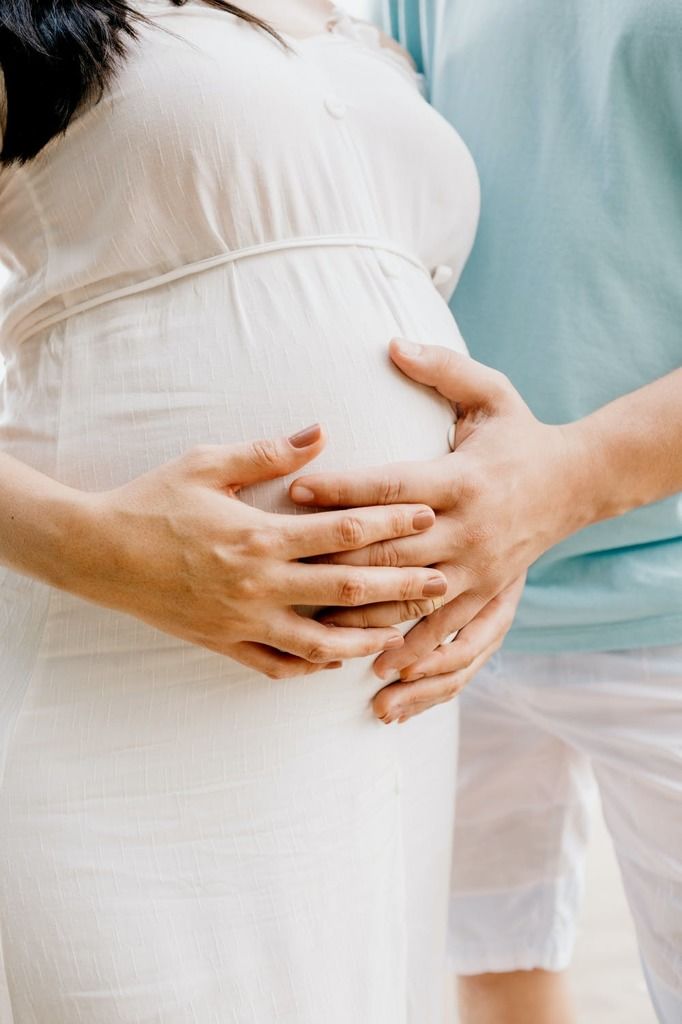
Symptoms and Causes
What are the symptoms of postpartum anxiety?
Anxiety is your body's way of responding to danger or threats. If you have postpartum anxiety, you may feel like you or your baby is in constant danger. The symptoms you feel are your body's way of reacting to this constant sense of worry or fear.
Common signs of postpartum anxiety are:
Physical symptoms
- Disrupted sleep.
- Increased heart rate or heart palpitations.
- Nausea or stomach aches.
- Being unable to breathe or feeling short of breath.
- Loss of appetite.
- Trouble sitting still.
- Muscle tension.
Emotional symptoms
- Inability to relax or keep calm.
- Racing thoughts, especially about worse-case scenarios.
- Obsessing over irrational fears or things that are unlikely to happen.
- Difficulty focusing or forgetfulness.
- Irritability.
- Feeling on edge or fearful.

Behavioral symptoms
- Avoiding certain activities, people or places.
- Being overly cautious about situations that aren't dangerous.
- Checking things over and over again.
- Being controlling.
There are certain conditions like obsessive-compulsive disorder (OCD) or panic disorders that can affect you during the postpartum period. If you are suffering from either of these conditions, you may have panic attacks or obsessive thoughts.
Be honest with your healthcare providers about all the symptoms you feel. They are there to support you and recommend treatments to help.
What are the main causes of postpartum anxiety?
There is no one cause for postpartum anxiety. Healthcare providers think several factors can cause it:
- Change in hormones: The sharp decrease in hormones after delivery can cause changes in mood or cause you to overreact to stress.
- Lack of sleep: Caring for newborns can be a 24-hour job and cause sleep deprivation.

- Feelings of responsibility: You may be overcome with feelings of needing to protect and care for your new baby.
- Stressful events: Certain milestones or events in your baby's life could trigger anxiety. For example, issues with breastfeeding, a difficult pregnancy or stressful delivery.
- Risk factors that increase your chances of postpartum anxiety: Health conditions and past experiences may put you at a higher risk for developing anxiety.
What are some risk factors for getting postpartum anxiety?
- Personal or family history of depression or anxiety.
- Previous pregnancy loss or loss of a child.
- Having a baby or child with health conditions.
- History of eating disorders.
- Caring for multiple children.
- Personality type (being a natural worrier).
- Not having a supportive partner or a support network after childbirth.
When does postpartum anxiety start?
It depends on the individual. It can start as early as right after birth or not begin until your baby is several months old. Anxiety can even begin during pregnancy.
It can start as early as right after birth or not begin until your baby is several months old. Anxiety can even begin during pregnancy.
Diagnosis and Tests
How is it diagnosed?
Unlike other medical conditions, there isn't a clear diagnostic tool for postpartum anxiety. There are postpartum anxiety questionnaires that your provider may ask at your appointment. You should not feel ashamed or uncomfortable sharing your symptoms. Having an open and honest conversation about your anxiety is often the best tool providers have to diagnose postpartum anxiety. They may ask you questions or use other screening tools to diagnose postpartum anxiety and determine the severity of symptoms.
Management and Treatment
How is postpartum anxiety treated?
Your healthcare provider will recommend treatment based on your symptoms, health history or if you are breastfeeding. In mild cases, changes to daily activities or speaking with a counselor can help reduce symptoms.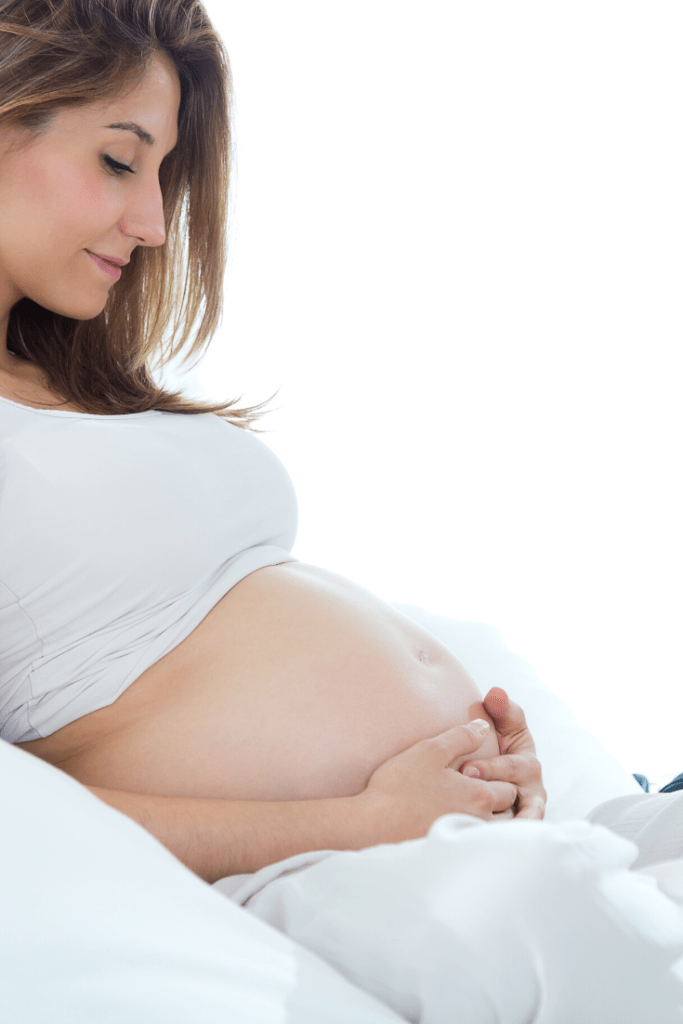 If your anxiety worsens or is interfering with your life, medication may be an option.
If your anxiety worsens or is interfering with your life, medication may be an option.
Cognitive behavioral therapy (CBT) for postpartum anxiety
CBT is a technique used by therapists or psychologists to help identify your emotions and change your thought patterns. Through CBT, you can unlearn negative thoughts and behaviors and adopt healthier thinking patterns and habits. CBT typically takes place over several one-on-one sessions. Using a question-and-answer format in your sessions, your therapist or counselor helps you learn to respond better to stress and anxiety. In some cases, your therapist may specialize in the emotions and behaviors of the postpartum period.
Non-medicated treatments for postpartum anxiety
Medication is not always needed to treat postpartum anxiety. Some ways to treat postpartum anxiety without medication are:
- Find a support group for new parents (some are 100% online) where you can share your feelings with people in a similar situation.
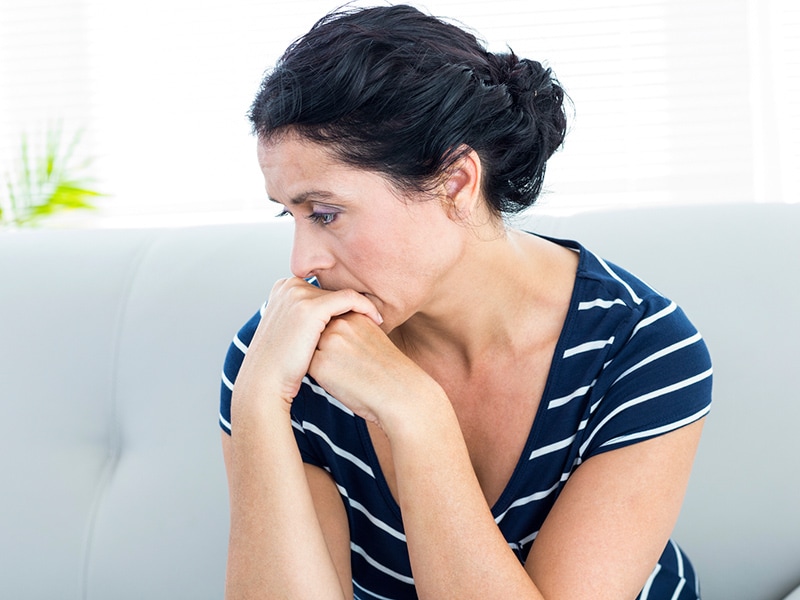
- Ask for help from family or friends. For example, having someone help with chores or babysitting can take some pressure off of you.
- Try to take a walk or get exercise every day. Practicing yoga can also help with relaxation.
- Take care of yourself by eating a healthy diet and sleeping as much as you can.
You may feel like you are being pulled in 100 different directions. Taking care of a baby (and yourself) and being a parent is a difficult job. Don't be afraid to ask for help.
What medications are used for postpartum anxiety?
SSRIs (selective serotonin reuptake inhibitors) are the most widely used and most researched medication for postpartum anxiety and postpartum depression. SSRIs work by increasing the level of serotonin in the brain. After carrying a message between cells, serotonin is reabsorbed by the nerve cells. SSRIs work by blocking reabsorption. This means more serotonin is available to pass messages between nerve cells.
Serotonin-norepinephrine reuptake inhibitors (SNRIs) work similarly to SSRIs by increasing certain chemicals in your brain.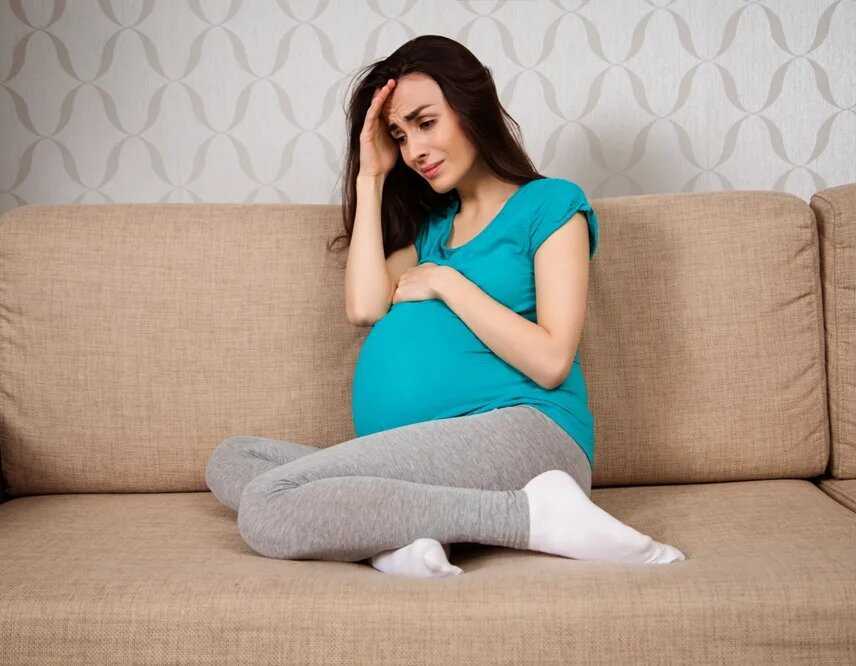
Other medications like tricyclic antidepressants (TCAs), monoamine oxidase inhibitors (MAOIs) and norepinephrine and dopamine reuptake inhibitors (NDRIs) can be used to treat anxiety. However, SSRIs are the preferred medication because of their low side effects.
All medications come with possible side effects. Before taking medication to treat your anxiety, weigh the risks and benefits with your healthcare provider. If you are breastfeeding or plan to breastfeed, let your provider know so they can provide a breastfeeding-friendly treatment.
Can I breastfeed if I am on anti-anxiety medication?
If you are breastfeeding, it's best to discuss the risks and benefits of medication with your healthcare provider. Medications are passed to your baby through your bloodstream and breastmilk. Certain medications are safe to use during pregnancy and while breastfeeding, but others are not.
How long does postpartum anxiety last?
It varies depending on the person.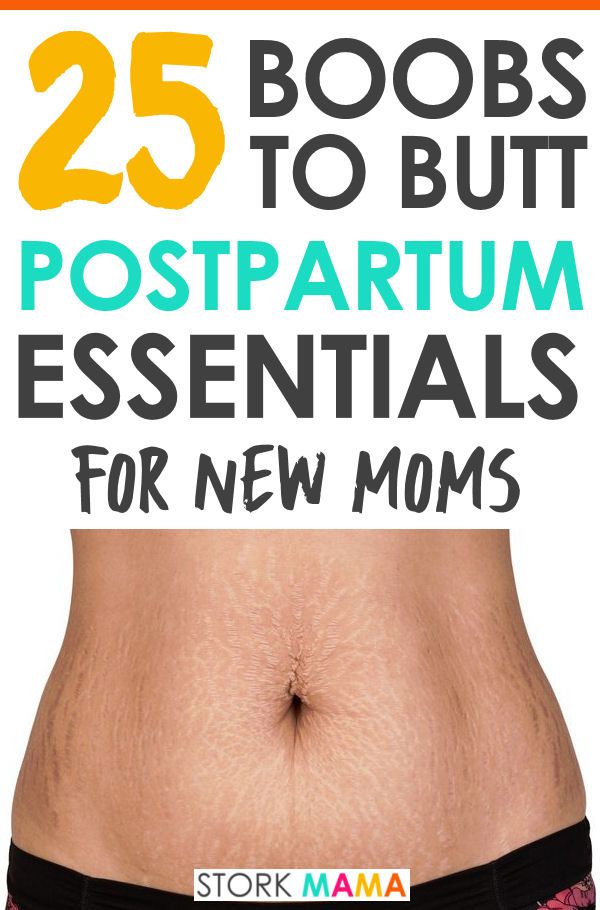 Postpartum anxiety doesn't last forever but also doesn't typically go away on its own. Getting prompt treatment from your healthcare provider is the best way to recover from postpartum anxiety. Do not be afraid of the stigma associated with anxiety or let it prevent you from seeking help.
Postpartum anxiety doesn't last forever but also doesn't typically go away on its own. Getting prompt treatment from your healthcare provider is the best way to recover from postpartum anxiety. Do not be afraid of the stigma associated with anxiety or let it prevent you from seeking help.
Can postpartum anxiety come back?
Yes, it can. Unfortunately, excessive anxiety can strike at any time. It may not be labeled as postpartum anxiety if it occurs 12 months after your baby is born, but anxious feelings related to your children can develop at any time. It's important to talk with your healthcare provider if extreme worry interferes with your life, no matter your child's age.
Prevention
How can I reduce my risk for postpartum anxiety?
Sometimes there isn't anything you can do to prevent postpartum anxiety. It's not your fault and not caused by anything you did or didn't do. If you know of specific triggers from your past or have a history of anxiety or depression, talk to someone during your pregnancy.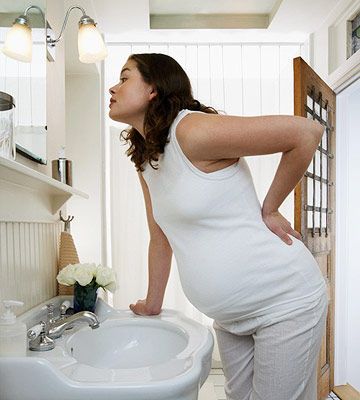 Talking with a counselor and learning coping tools before your baby is born can reduce the intensity of your anxious thoughts during the postpartum period.
Talking with a counselor and learning coping tools before your baby is born can reduce the intensity of your anxious thoughts during the postpartum period.
Outlook / Prognosis
How do I cope with postpartum anxiety?
First, know that you're not alone and that caring for a new baby is hard work. Your feelings are valid, and there is nothing you did to cause postpartum anxiety. The best thing you can do for yourself is to seek help from your healthcare provider. They will be able to help you find the support you need or recommend medication, if necessary. Finding a group of trusted friends or family members to talk to or share responsibilities with may help. Finally, try to set aside time for activities that bring you happiness. Sometimes parents forget about themselves. Taking a few minutes to enjoy a hobby can help take your mind off your worries.
Living With
When should I call my doctor?
Contact your healthcare provider if you have any symptoms of postpartum anxiety.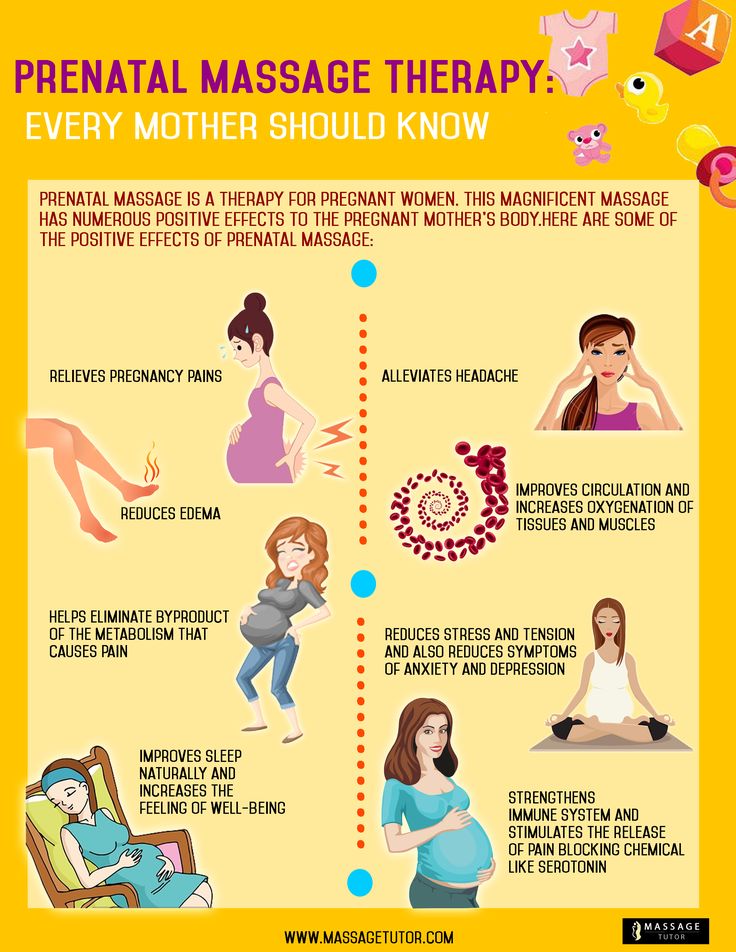 Some specific signs to watch for are:
Some specific signs to watch for are:
- Feeling like you aren't bonding with your baby.
- Feeling like you are worrying all day, every day.
- Signs of postpartum depression.
- Feeling overwhelmed with day-to-day life.
- Feeling like your anxious thoughts are worsening.
If you need immediate help or have thoughts of hurting yourself or your baby, contact the National Suicide Prevention Hotline at 1-800-273-8255.
Frequently Asked Questions
Can my spouse get postpartum anxiety?
Yes, your spouse can have postpartum anxiety. Anxiety doesn't just affect the parent who gave birth. Adoptive parents and nonbiological parents can also suffer from excessive worry after having a baby.
How can I help my friend with postpartum anxiety?
The best thing you can do for your friend with postpartum anxiety is to be a supportive listener. Allow your friend to talk through their thoughts and feelings. They are likely feeling overwhelmed, so offering to help with household chores (like cleaning or laundry) or other errands (like grocery shopping) could be beneficial.
A note from Cleveland Clinic
Adjusting to life with a new baby comes with lots of new challenges. Some worrying in the years after childbirth is expected. For some people, the worrying becomes extreme and takes over their thoughts or leads to physical symptoms like heart palpitations and insomnia. This could be postpartum anxiety. Know that it is not your fault if you feel like this, and many others experience similar symptoms. Help is available to you. Talk to your healthcare provider if you have symptoms of postpartum anxiety. You don’t need to suffer. You’ll feel better if you seek treatment for your symptoms.
Causes, Symptoms, Diagnosis & Treatment
Overview
What is postpartum anxiety?
Postpartum anxiety is when a person experiences severe anxiety after having a baby or becoming a parent (the postpartum period). These anxious feelings are often out of control and take over your thoughts. Some level of worry is expected after welcoming a new baby to your family. But, if you have postpartum anxiety, the worry can be all-consuming or make you feel worried all day and all night. It often causes you to have irrational fears or excessive worries about events that are unlikely to happen. Sometimes the anxiety is related to a specific incident from your past, but other times the worry is general and vague. For example, you may feel a constant sense of danger but be unable to put your finger on the cause.
But, if you have postpartum anxiety, the worry can be all-consuming or make you feel worried all day and all night. It often causes you to have irrational fears or excessive worries about events that are unlikely to happen. Sometimes the anxiety is related to a specific incident from your past, but other times the worry is general and vague. For example, you may feel a constant sense of danger but be unable to put your finger on the cause.
Postpartum anxiety can occur along with postpartum depression. The conditions are different despite sharing many of the same symptoms.
How common is postpartum anxiety?
Studies have shown that postpartum anxiety affects between 11% and 21% of people designated female at birth. Healthcare providers don't have a specific screening to diagnose postpartum anxiety, so it's hard to determine exactly how many people suffer from the condition. It's often identified during an assessment for postpartum depression (which researchers know more about).
What is the difference between postpartum anxiety and postpartum depression?
If you have postpartum depression, you may experience excessive sadness, frequent crying or feel like you can't take care of yourself or your baby. You may have trouble finding joy in your baby or feel like you aren't capable of being a parent. Postpartum anxiety is associated with excessive worrying, not with sadness. If you feel panicked or overwhelmed with fearful thoughts, you may be suffering from postpartum anxiety.
Many of the signs of postpartum depression overlap with postpartum anxiety like disrupted sleep, heart palpitations or feeling afraid. It's common for people with postpartum depression to experience signs of postpartum anxiety. However, not everyone with postpartum anxiety is also depressed.
It's important to discuss all of your symptoms and feelings with your healthcare provider so they can help you.
How do I know it's postpartum anxiety and not just worrying?
Having a baby or becoming a parent and worrying go hand in hand.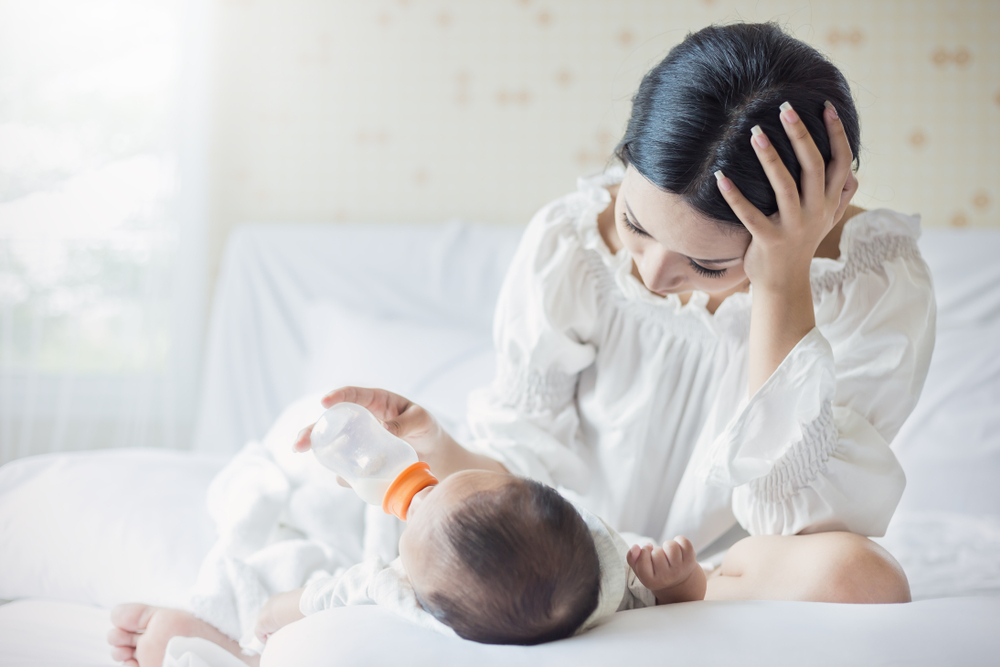 Postpartum anxiety is an excessive or extreme worry that feels like it never stops. If your worrying interferes with your ability to calm down and feels like it lasts all day, you may have postpartum anxiety. Postpartum anxiety is also associated with irrational fears or constantly feeling on edge.
Postpartum anxiety is an excessive or extreme worry that feels like it never stops. If your worrying interferes with your ability to calm down and feels like it lasts all day, you may have postpartum anxiety. Postpartum anxiety is also associated with irrational fears or constantly feeling on edge.
Some examples of postpartum anxiety could be:
- Staying awake all night because you are afraid your baby will stop breathing in their sleep.
- Being terrified to leave your baby alone for a few minutes with an adult you trust (or your spouse).
- Being so afraid someone will hurt you or your child that the thought of leaving your house makes your heart race.
Symptoms and Causes
What are the symptoms of postpartum anxiety?
Anxiety is your body's way of responding to danger or threats. If you have postpartum anxiety, you may feel like you or your baby is in constant danger. The symptoms you feel are your body's way of reacting to this constant sense of worry or fear.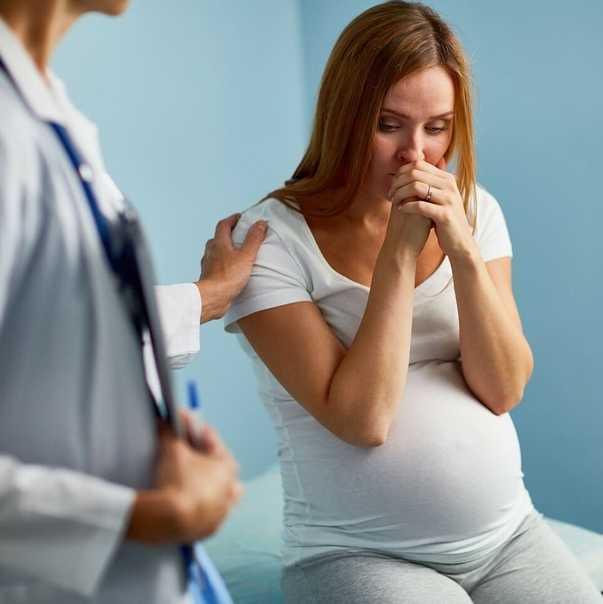
Common signs of postpartum anxiety are:
Physical symptoms
- Disrupted sleep.
- Increased heart rate or heart palpitations.
- Nausea or stomach aches.
- Being unable to breathe or feeling short of breath.
- Loss of appetite.
- Trouble sitting still.
- Muscle tension.
Emotional symptoms
- Inability to relax or keep calm.
- Racing thoughts, especially about worse-case scenarios.
- Obsessing over irrational fears or things that are unlikely to happen.
- Difficulty focusing or forgetfulness.
- Irritability.
- Feeling on edge or fearful.
Behavioral symptoms
- Avoiding certain activities, people or places.
- Being overly cautious about situations that aren't dangerous.
- Checking things over and over again.
- Being controlling.
There are certain conditions like obsessive-compulsive disorder (OCD) or panic disorders that can affect you during the postpartum period. If you are suffering from either of these conditions, you may have panic attacks or obsessive thoughts.
If you are suffering from either of these conditions, you may have panic attacks or obsessive thoughts.
Be honest with your healthcare providers about all the symptoms you feel. They are there to support you and recommend treatments to help.
What are the main causes of postpartum anxiety?
There is no one cause for postpartum anxiety. Healthcare providers think several factors can cause it:
- Change in hormones: The sharp decrease in hormones after delivery can cause changes in mood or cause you to overreact to stress.
- Lack of sleep: Caring for newborns can be a 24-hour job and cause sleep deprivation.
- Feelings of responsibility: You may be overcome with feelings of needing to protect and care for your new baby.
- Stressful events: Certain milestones or events in your baby's life could trigger anxiety. For example, issues with breastfeeding, a difficult pregnancy or stressful delivery.

- Risk factors that increase your chances of postpartum anxiety: Health conditions and past experiences may put you at a higher risk for developing anxiety.
What are some risk factors for getting postpartum anxiety?
- Personal or family history of depression or anxiety.
- Previous pregnancy loss or loss of a child.
- Having a baby or child with health conditions.
- History of eating disorders.
- Caring for multiple children.
- Personality type (being a natural worrier).
- Not having a supportive partner or a support network after childbirth.
When does postpartum anxiety start?
It depends on the individual. It can start as early as right after birth or not begin until your baby is several months old. Anxiety can even begin during pregnancy.
Diagnosis and Tests
How is it diagnosed?
Unlike other medical conditions, there isn't a clear diagnostic tool for postpartum anxiety.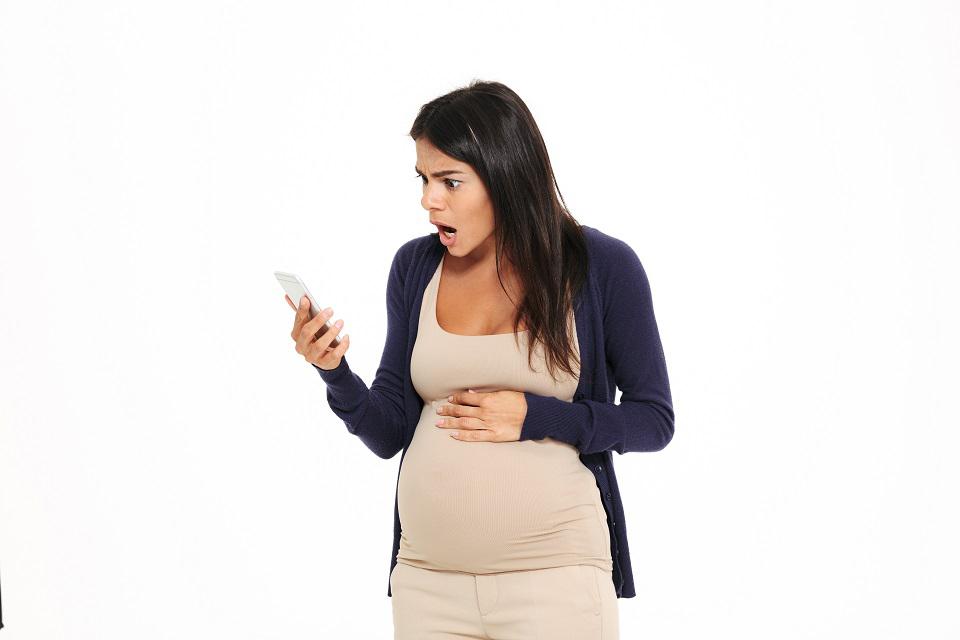 There are postpartum anxiety questionnaires that your provider may ask at your appointment. You should not feel ashamed or uncomfortable sharing your symptoms. Having an open and honest conversation about your anxiety is often the best tool providers have to diagnose postpartum anxiety. They may ask you questions or use other screening tools to diagnose postpartum anxiety and determine the severity of symptoms.
There are postpartum anxiety questionnaires that your provider may ask at your appointment. You should not feel ashamed or uncomfortable sharing your symptoms. Having an open and honest conversation about your anxiety is often the best tool providers have to diagnose postpartum anxiety. They may ask you questions or use other screening tools to diagnose postpartum anxiety and determine the severity of symptoms.
Management and Treatment
How is postpartum anxiety treated?
Your healthcare provider will recommend treatment based on your symptoms, health history or if you are breastfeeding. In mild cases, changes to daily activities or speaking with a counselor can help reduce symptoms. If your anxiety worsens or is interfering with your life, medication may be an option.
Cognitive behavioral therapy (CBT) for postpartum anxiety
CBT is a technique used by therapists or psychologists to help identify your emotions and change your thought patterns. Through CBT, you can unlearn negative thoughts and behaviors and adopt healthier thinking patterns and habits.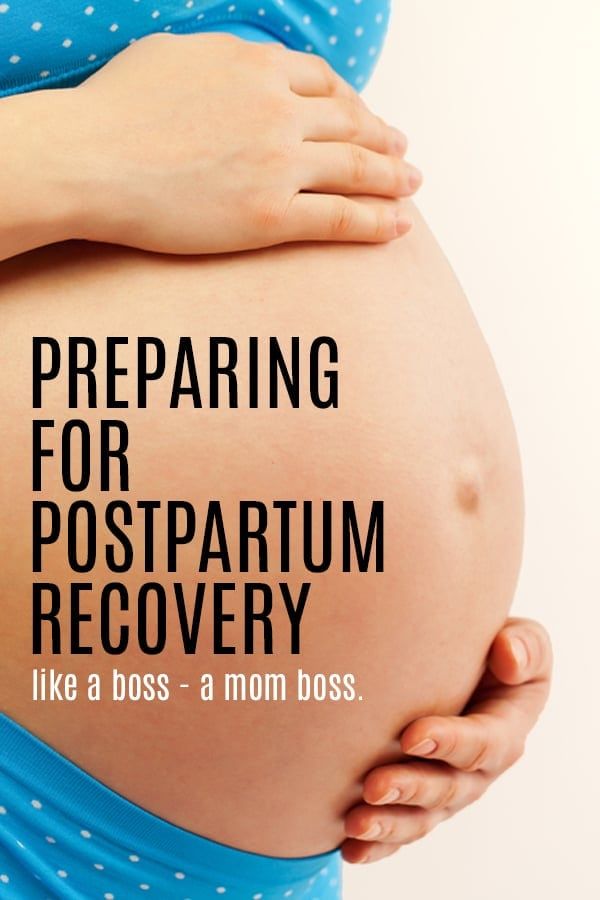 CBT typically takes place over several one-on-one sessions. Using a question-and-answer format in your sessions, your therapist or counselor helps you learn to respond better to stress and anxiety. In some cases, your therapist may specialize in the emotions and behaviors of the postpartum period.
CBT typically takes place over several one-on-one sessions. Using a question-and-answer format in your sessions, your therapist or counselor helps you learn to respond better to stress and anxiety. In some cases, your therapist may specialize in the emotions and behaviors of the postpartum period.
Non-medicated treatments for postpartum anxiety
Medication is not always needed to treat postpartum anxiety. Some ways to treat postpartum anxiety without medication are:
- Find a support group for new parents (some are 100% online) where you can share your feelings with people in a similar situation.
- Ask for help from family or friends. For example, having someone help with chores or babysitting can take some pressure off of you.
- Try to take a walk or get exercise every day. Practicing yoga can also help with relaxation.
- Take care of yourself by eating a healthy diet and sleeping as much as you can.
You may feel like you are being pulled in 100 different directions. Taking care of a baby (and yourself) and being a parent is a difficult job. Don't be afraid to ask for help.
Taking care of a baby (and yourself) and being a parent is a difficult job. Don't be afraid to ask for help.
What medications are used for postpartum anxiety?
SSRIs (selective serotonin reuptake inhibitors) are the most widely used and most researched medication for postpartum anxiety and postpartum depression. SSRIs work by increasing the level of serotonin in the brain. After carrying a message between cells, serotonin is reabsorbed by the nerve cells. SSRIs work by blocking reabsorption. This means more serotonin is available to pass messages between nerve cells.
Serotonin-norepinephrine reuptake inhibitors (SNRIs) work similarly to SSRIs by increasing certain chemicals in your brain.
Other medications like tricyclic antidepressants (TCAs), monoamine oxidase inhibitors (MAOIs) and norepinephrine and dopamine reuptake inhibitors (NDRIs) can be used to treat anxiety. However, SSRIs are the preferred medication because of their low side effects.
All medications come with possible side effects. Before taking medication to treat your anxiety, weigh the risks and benefits with your healthcare provider. If you are breastfeeding or plan to breastfeed, let your provider know so they can provide a breastfeeding-friendly treatment.
Before taking medication to treat your anxiety, weigh the risks and benefits with your healthcare provider. If you are breastfeeding or plan to breastfeed, let your provider know so they can provide a breastfeeding-friendly treatment.
Can I breastfeed if I am on anti-anxiety medication?
If you are breastfeeding, it's best to discuss the risks and benefits of medication with your healthcare provider. Medications are passed to your baby through your bloodstream and breastmilk. Certain medications are safe to use during pregnancy and while breastfeeding, but others are not.
How long does postpartum anxiety last?
It varies depending on the person. Postpartum anxiety doesn't last forever but also doesn't typically go away on its own. Getting prompt treatment from your healthcare provider is the best way to recover from postpartum anxiety. Do not be afraid of the stigma associated with anxiety or let it prevent you from seeking help.
Can postpartum anxiety come back?
Yes, it can.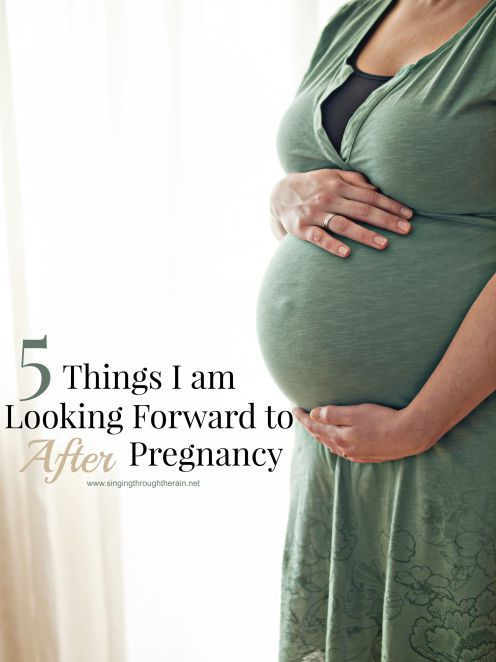 Unfortunately, excessive anxiety can strike at any time. It may not be labeled as postpartum anxiety if it occurs 12 months after your baby is born, but anxious feelings related to your children can develop at any time. It's important to talk with your healthcare provider if extreme worry interferes with your life, no matter your child's age.
Unfortunately, excessive anxiety can strike at any time. It may not be labeled as postpartum anxiety if it occurs 12 months after your baby is born, but anxious feelings related to your children can develop at any time. It's important to talk with your healthcare provider if extreme worry interferes with your life, no matter your child's age.
Prevention
How can I reduce my risk for postpartum anxiety?
Sometimes there isn't anything you can do to prevent postpartum anxiety. It's not your fault and not caused by anything you did or didn't do. If you know of specific triggers from your past or have a history of anxiety or depression, talk to someone during your pregnancy. Talking with a counselor and learning coping tools before your baby is born can reduce the intensity of your anxious thoughts during the postpartum period.
Outlook / Prognosis
How do I cope with postpartum anxiety?
First, know that you're not alone and that caring for a new baby is hard work.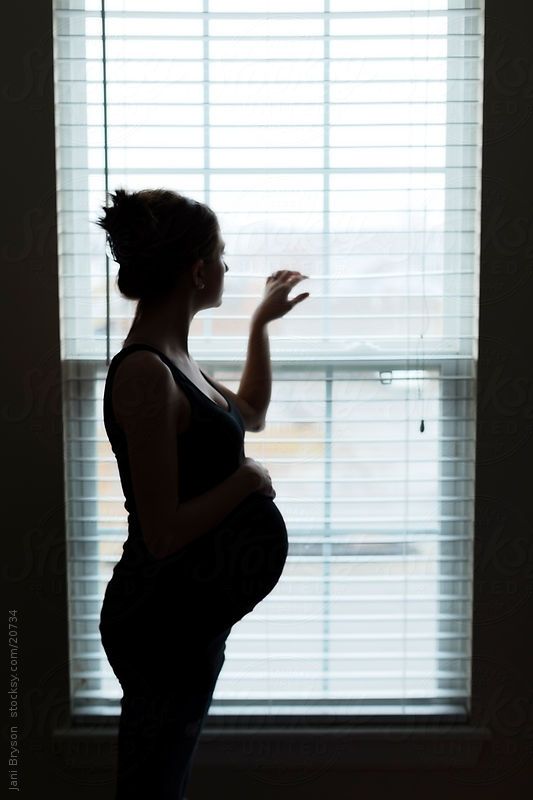 Your feelings are valid, and there is nothing you did to cause postpartum anxiety. The best thing you can do for yourself is to seek help from your healthcare provider. They will be able to help you find the support you need or recommend medication, if necessary. Finding a group of trusted friends or family members to talk to or share responsibilities with may help. Finally, try to set aside time for activities that bring you happiness. Sometimes parents forget about themselves. Taking a few minutes to enjoy a hobby can help take your mind off your worries.
Your feelings are valid, and there is nothing you did to cause postpartum anxiety. The best thing you can do for yourself is to seek help from your healthcare provider. They will be able to help you find the support you need or recommend medication, if necessary. Finding a group of trusted friends or family members to talk to or share responsibilities with may help. Finally, try to set aside time for activities that bring you happiness. Sometimes parents forget about themselves. Taking a few minutes to enjoy a hobby can help take your mind off your worries.
Living With
When should I call my doctor?
Contact your healthcare provider if you have any symptoms of postpartum anxiety. Some specific signs to watch for are:
- Feeling like you aren't bonding with your baby.
- Feeling like you are worrying all day, every day.
- Signs of postpartum depression.
- Feeling overwhelmed with day-to-day life.
- Feeling like your anxious thoughts are worsening.
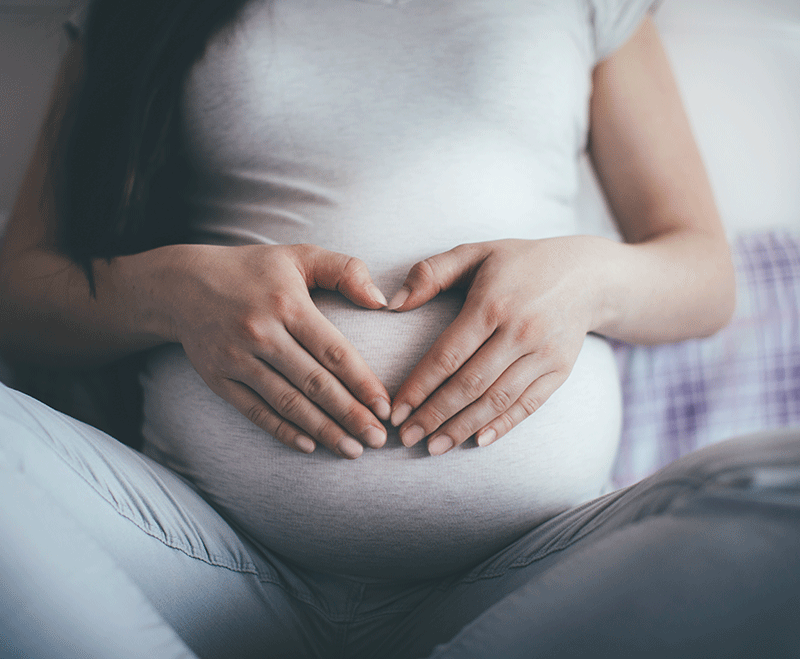
If you need immediate help or have thoughts of hurting yourself or your baby, contact the National Suicide Prevention Hotline at 1-800-273-8255.
Frequently Asked Questions
Can my spouse get postpartum anxiety?
Yes, your spouse can have postpartum anxiety. Anxiety doesn't just affect the parent who gave birth. Adoptive parents and nonbiological parents can also suffer from excessive worry after having a baby.
How can I help my friend with postpartum anxiety?
The best thing you can do for your friend with postpartum anxiety is to be a supportive listener. Allow your friend to talk through their thoughts and feelings. They are likely feeling overwhelmed, so offering to help with household chores (like cleaning or laundry) or other errands (like grocery shopping) could be beneficial.
A note from Cleveland Clinic
Adjusting to life with a new baby comes with lots of new challenges. Some worrying in the years after childbirth is expected. For some people, the worrying becomes extreme and takes over their thoughts or leads to physical symptoms like heart palpitations and insomnia. This could be postpartum anxiety. Know that it is not your fault if you feel like this, and many others experience similar symptoms. Help is available to you. Talk to your healthcare provider if you have symptoms of postpartum anxiety. You don’t need to suffer. You’ll feel better if you seek treatment for your symptoms.
For some people, the worrying becomes extreme and takes over their thoughts or leads to physical symptoms like heart palpitations and insomnia. This could be postpartum anxiety. Know that it is not your fault if you feel like this, and many others experience similar symptoms. Help is available to you. Talk to your healthcare provider if you have symptoms of postpartum anxiety. You don’t need to suffer. You’ll feel better if you seek treatment for your symptoms.
“I became anxious after giving birth. How not to dwell on frightening thoughts?
Question for an expertParentsKnow thyself
I have always been somewhat anxious. But recently I had a baby, and my fears became simply unbearable. Any bad news just makes me stressed, I can cry from an advertisement for helping sick children. I try to arrange an informational detox for myself, but now in our world it is more and more difficult.
Naturally, I became a hundred times more worried about my husband and child. I understand that this is not normal, it is simply impossible to live like this. I will not be a good mother for my child with such moods. I don't sleep well, I'm constantly stressed. Neither comedy, nor a passion for foreign languages, nor cooking, nor caring for a child can save me.
I understand that this is not normal, it is simply impossible to live like this. I will not be a good mother for my child with such moods. I don't sleep well, I'm constantly stressed. Neither comedy, nor a passion for foreign languages, nor cooking, nor caring for a child can save me.
I still have no idea how to get out of this terrible state. I don’t want to run away from the bad, but to perceive everything steadfastly. And I want to think about the good, and not dwell on the bad.
Maria, 30 years old
Maria, thank you for your question! Many women experience increased anxiety after the birth of a child (especially the first). You are not alone here. And I hope that your question and my answer will help not only you, but also many who have met with similar experiences.
In my opinion, in your case and in thousands of similar cases, it is useless to look for external ways to reduce anxiety. It is unlikely that the methods that people around love to advise so much will help: baths with aromatic oils, “infodetox”, walks in the fresh air.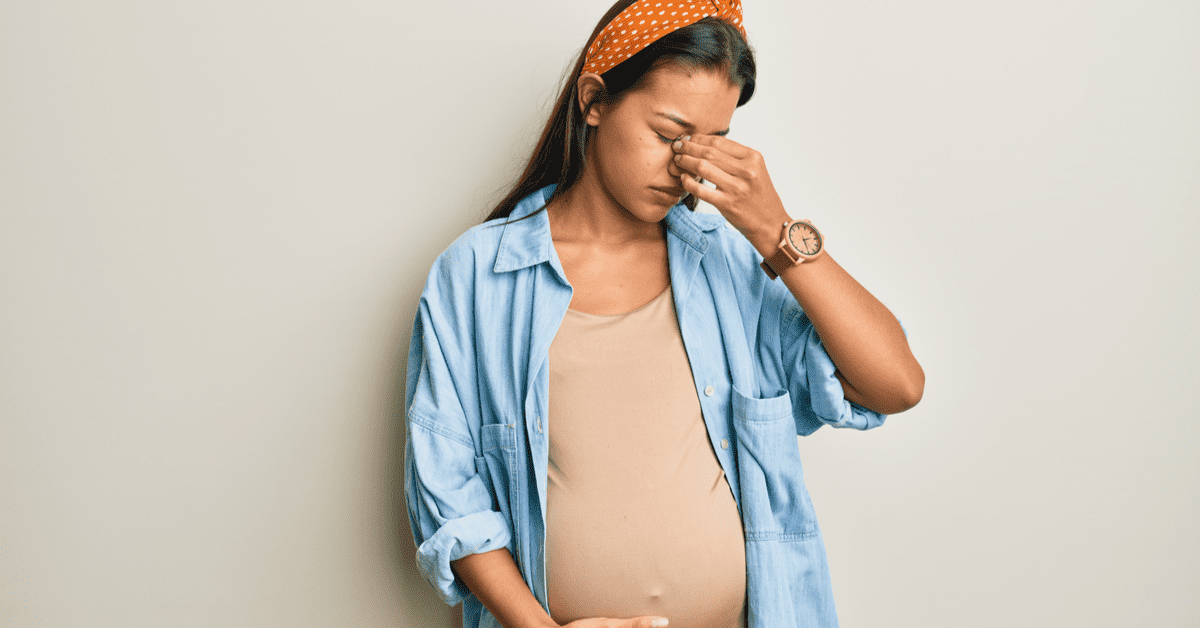 However, pills on the recommendation of a psychiatrist are also unlikely. Because, as I feel, the true causes of anxiety are inside. And if you really look for help, then from a psychotherapist who can find out if you still have resources, if you can rely on yourself. A therapist can help you do this.
However, pills on the recommendation of a psychiatrist are also unlikely. Because, as I feel, the true causes of anxiety are inside. And if you really look for help, then from a psychotherapist who can find out if you still have resources, if you can rely on yourself. A therapist can help you do this.
Yes, asthenic condition after pregnancy and childbirth, hormonal "avalanches", family environment, change of primary roles from "woman" to "mother" (this is stress in itself), of course, create favorable conditions for anxiety symptoms to get development and intensified. But it's not that.
It's about resources, about our vulnerability and weak ability to protect ourselves. That is why anxiety is, in fact, “unobjectified” fear. It is necessary that those parts of your “I” that are now under threat (which is why anxiety arises) feel the support of the fact that there is “you-strong”, “you-adult”. Before you can be a good parent to your children, it's a good idea to be a good parent to yourself.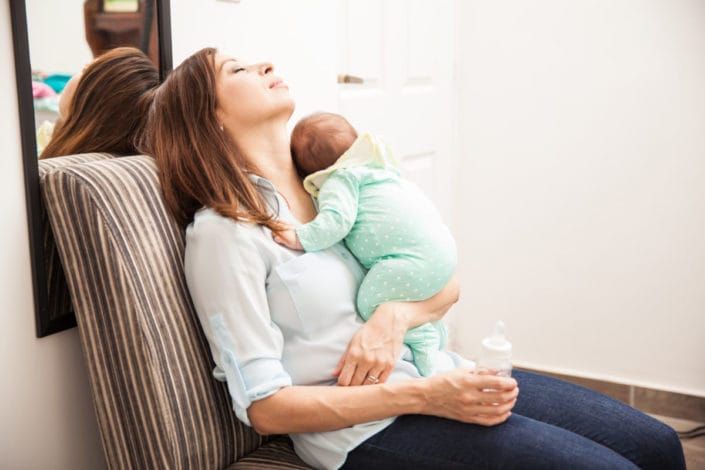 Now I will explain what I mean.
Now I will explain what I mean.
Let's try to restore the integrity of the picture. There was something in your life before giving birth that you relied on. Something that helped you feel good, nourished and supported you, helped you see external feedback about your acceptance and need, conditional “goodness”. For many women, this is professional self-realization, sexual appearance, a beautiful body ... Something that we refuse or temporarily say goodbye to after giving birth.
Most likely, with the advent of the child, these resources somehow disappeared or decreased, and this is a normal scenario. Difficulties begin when all of the above are the only and predominant resources. And for some reason, you lacked a deep sense of your acceptance, love - that you are needed in this world.
Think of a mother holding a baby in her arms. Now you also need such warm receiving hugs
Before giving birth, we compensated for the internal lack at the expense of the external. During pregnancy, you felt the care and participation of loved ones, everyone was worried and helped in every possible way, and this supported you. And then the woman is left, as it were, alone with the little man. She may not know what to do with him (motherhood is an experience), she needs support.
During pregnancy, you felt the care and participation of loved ones, everyone was worried and helped in every possible way, and this supported you. And then the woman is left, as it were, alone with the little man. She may not know what to do with him (motherhood is an experience), she needs support.
The family may not respond to this unspoken request in a motherly way. And a woman lacks the skill to meet face to face with her feelings and needs, to pronounce them. And this completes a vicious circle.
It turns out that everything collapses at once: the situational uncertainty, the loss of external supports, and the lack of internal ones. Anxiety in this state can go off scale. And by all means, just by all means, now it is necessary to dive straight into the depths - to those same internal supports.
I don't know your biography and relationship pattern in your parental family. But something tells me that there was a gap. Somewhere you did not understand that you are the most needed child in this world.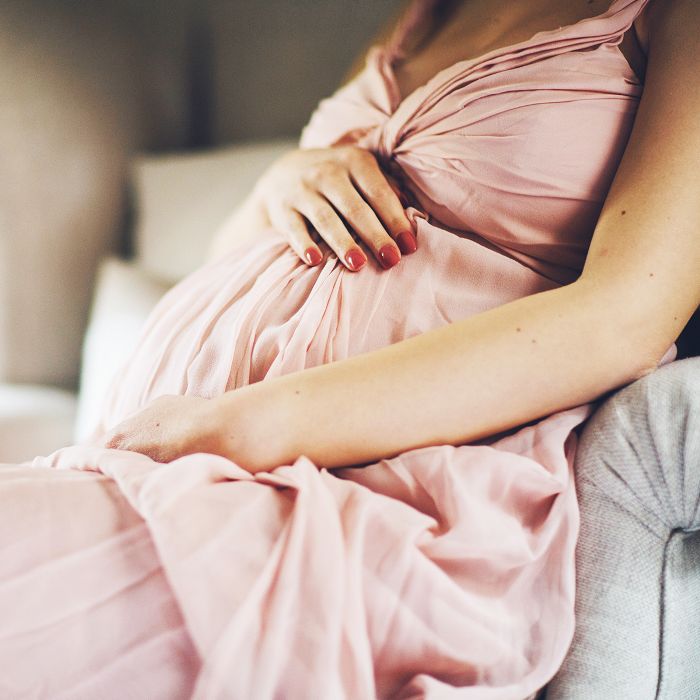 That the world is waiting for you and you are good enough to interact openly with it. That you can be active, you can wish and realize your desires.
That the world is waiting for you and you are good enough to interact openly with it. That you can be active, you can wish and realize your desires.
Forgive me for speaking directly: I understand that it can be unpleasant to read this and scary to start remembering what it was like in childhood. But chances are, I got to the root of the problem. And then this turn to yourself can save you from what is called postpartum depression.
What I wrote above is a process. You can't cut the Gordian knot here in one fell swoop. You will have to become the very mother who will be sensitive and attentive - first of all to your feelings and desires, she will speak them out loud. You may need to work on the body.
Think of a mother holding a baby in her arms. These warm receiving hugs are now needed not only for your baby, but also for you. It's like hugging yourself and singing a lullaby to yourself, saying your feelings: “It looks like I'm worried right now ... It's just my anxiety.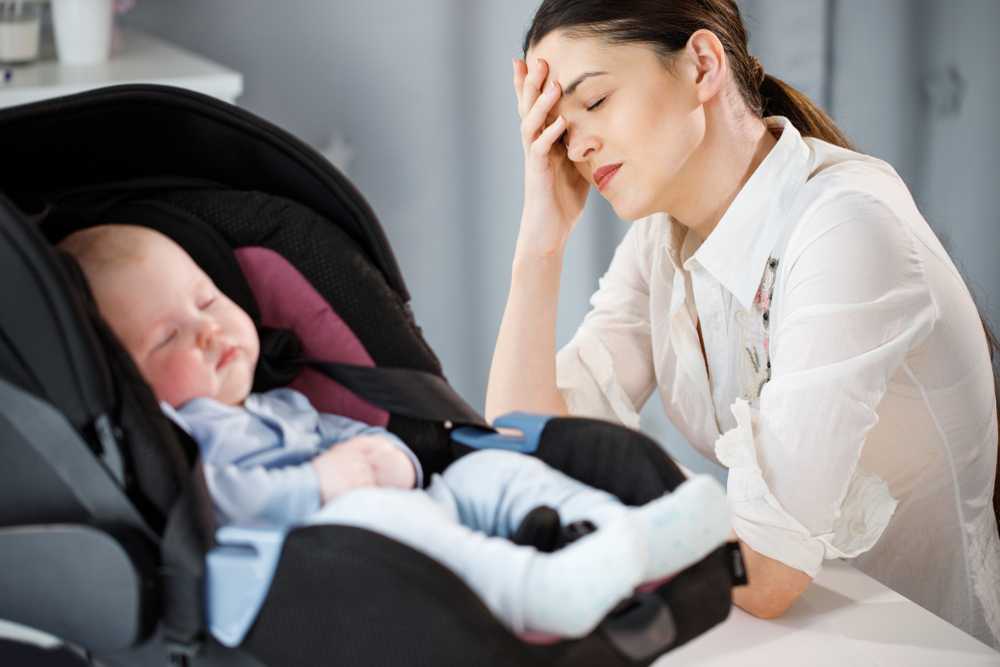 I am more than my feeling. I can stand it - I have a lot of me, I'm big. And here you need to pay attention to your body.
I am more than my feeling. I can stand it - I have a lot of me, I'm big. And here you need to pay attention to your body.
It will be great if you stroke yourself like a mother strokes a baby, on the hands, on the legs, in order to feel yourself, your bodily “I” right now, in a moment of anxiety ... This is how the earliest spiritual “holes” of rejection are “closed” , insufficiently well-built "I".
The worst thing you can do is fall into the position of a victim and wait for some magical help from outside
Maria, you are 30 years old. And you have that strong part that can calm the weak part, which has now lost its support. In addition, any anxiety implies blocked aggression. There are a lot of questions - both to the universe and to the family, which lie like a pebble in that worried, childish part of a woman. And it is inconvenient to voice them: there is a risk of meeting with social rejection.
We want to be pitied, supported.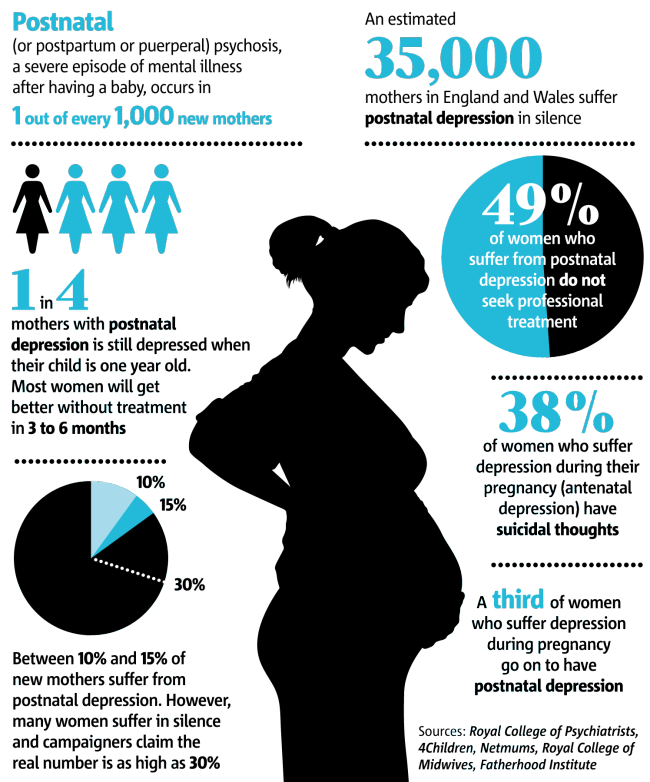 And the dearest and closest people are in no hurry to guess how exactly to pity and support us. And in general, they don’t seem to see that it’s hard for us ... Yes, we ourselves can’t sometimes say this and make it visible to ourselves.
And the dearest and closest people are in no hurry to guess how exactly to pity and support us. And in general, they don’t seem to see that it’s hard for us ... Yes, we ourselves can’t sometimes say this and make it visible to ourselves.
But feelings don't go anywhere, they remain in the form of tension. And if you don't work with them, they can break through in a passive format. It happens differently for everyone. Basically - as a misunderstanding in the family, in the form of all sorts of minor failures, quarrels. But if it is launched, the breakthrough could be colossal.
The good news is that once you start accepting yourself, talking about your feelings, learning to deal with them—just accept them as they are—you can definitely accept your aggression as well. It is not necessary to immediately run to realize your feelings in action (“Yeah, I’m angry with you - I’ll go and shout so that you can quickly fix it”). It is enough just to name them - it will already become much easier . ..
..
And then decide what to do in reality, so that it becomes not just easier for you, but noticeably better. And instead of yelling, it will already be possible to talk calmly. And then you will have no need to "save" your loved ones from your aggression by displacing it and generating anxiety. The amplitude of experiences will immediately decrease.
Able to accept yourself, your feelings and desires, recognize them as normal, you will be able to express them to loved ones. And to find a very constructive way that suits everyone to change reality.
You are absolutely right about durability. In the current situation, the worst thing that can be allowed is to fall into the position of a victim and wait for some kind of magical help from outside. As if someone will part the clouds with their hands. This will not happen. However, something tells me that you will not allow such a dramatic course of events for yourself.
You have to work on yourself, draw attention to yourself very sensitively, with great love.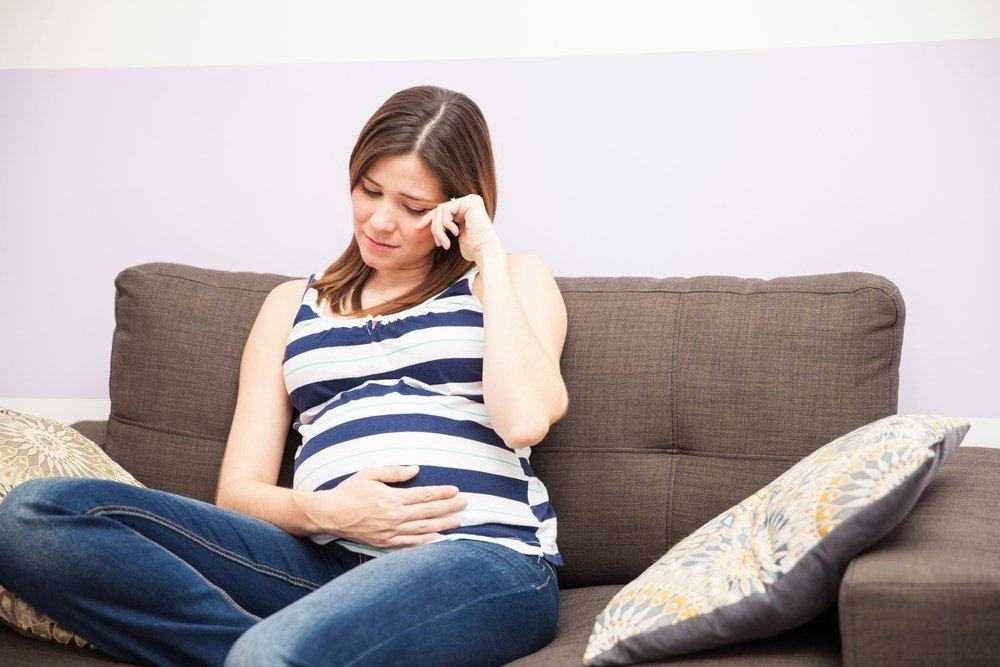 This, and only this, is the very inner stamina that will help you remove anxiety.
This, and only this, is the very inner stamina that will help you remove anxiety.
Most likely, it will be difficult for you to develop the skill of self-acceptance if you did not have it. Sometimes you need to peep somewhere: how we can be accepted, how we can be heard and seen, in order to start doing this for ourselves and with ourselves. And then we need someone who will show.
For this, it would be good to turn to a psychologist who can show you. How to find it at random, calculating it from the summary, I won’t tell here. Perhaps relying on my letter today will help you. I wish you all the best, Maria. Peace in the soul, peace in the family and great great love for yourself. It all starts with her.
Photo source: Getty Images
New on the site
How to understand that you are being squeezed out of work: 5 signs : What will the choice of car say about you
“My friend passes all our conversations to her mother. How can I stop this without offending her?
"A man gets mad when I ask him for advice about work"
"How do I look during sex?" It turns out that this issue is not only for women.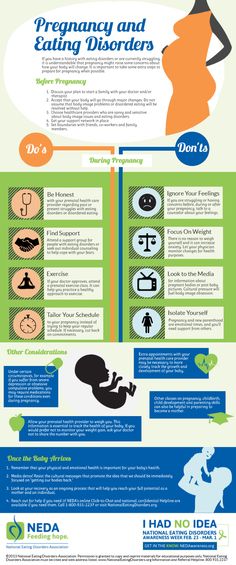 0003
0003
Getting out of the depths of despair: 3 main steps
Postpartum anxiety is dangerous for both mother and child both for the mother and for the child in the first 6 months - this is the conclusion of a new study by scientists from the College of Medicine at the University of Pennsylvania (Penn State College of Medicine), USA. The results of the study are published online in the journal Pediatrics.
In the course of the work, scientists analyzed the data of 1123 women who had recently given birth (mean age 29.0 ± 5.5 years) who participated in a randomized controlled trial devoted to the comparative study of two models of medical control over the condition of a young mother after discharge from the maternity hospital - in outpatient clinics. conditions and at home. All women supported breastfeeding.
Participants were interviewed about their well-being 2 weeks after birth, as well as after 2 and 6 months. Their level of anxiety was determined using the Spielberger State-Trait Anxiety Inventory, the presence of postpartum depression was determined using the Edinburgh Postnatal Depression Scale.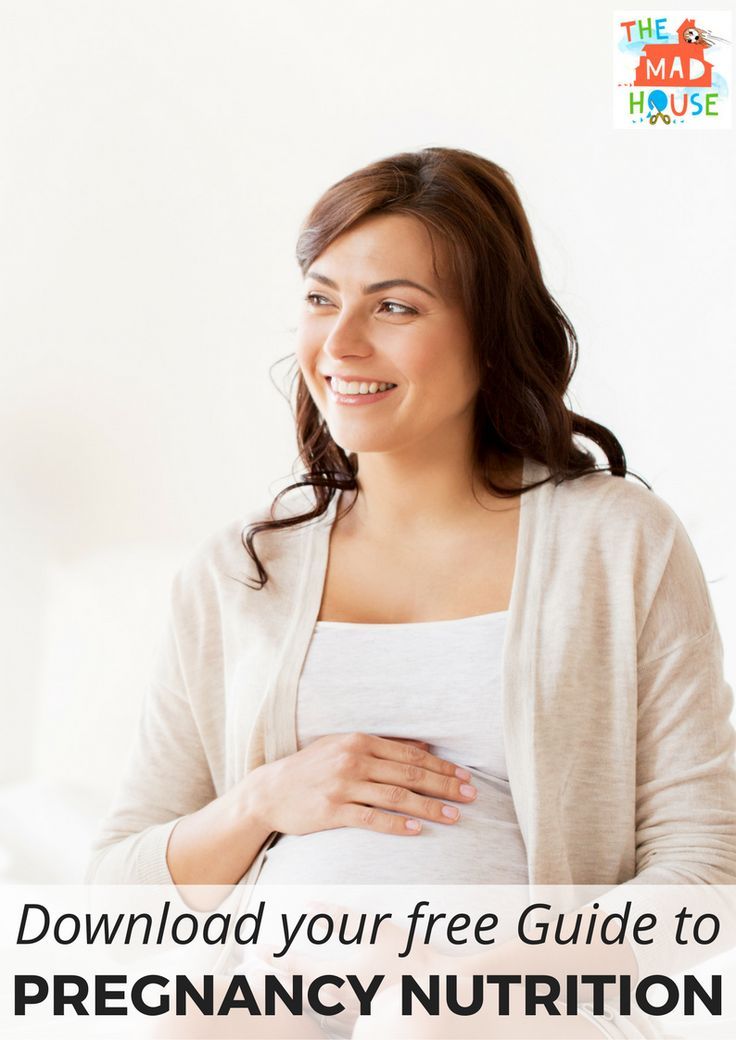
Anxiety was noted in women within 6 months after childbirth much more often than depression (17.1 vs. 5.5%; p<0.0001), and the combination of depression and anxiety was noted only in 3.7% of participants. 2 weeks after delivery, the frequency of increased anxiety decreased sharply (from 17.1 to 6.9%), which is probably due to the fact that women gradually got used to their new role. However, after that, the prevalence of this condition remained at the same level for a long time.
Researchers noted that the frequency of anxiety was higher in women who had a caesarean section compared with those participants who had a vaginal delivery (22 vs. 15%; p = 0.001), as well as in primiparas (20 vs. 15%; p=0.02). In addition, they noticed that anxiety was often accompanied by an increased emotional need for outpatient visits to the doctor during the first 2 weeks after delivery. Thus, women with increased anxiety made an average of 2 unscheduled visits (p<0.04). An increased need for newborns in medical care was not noted.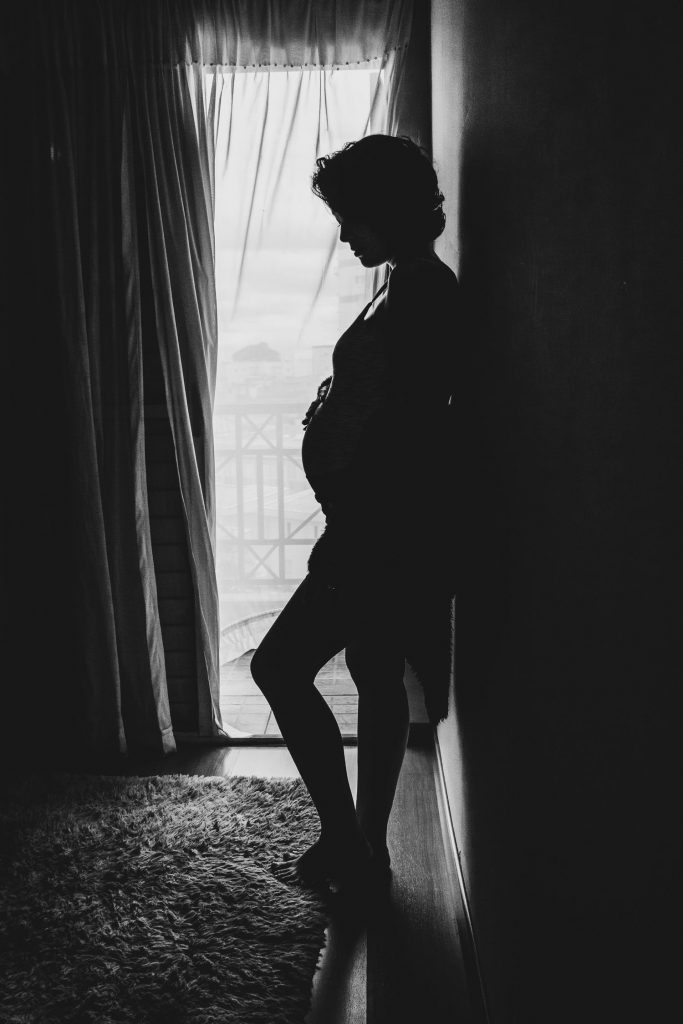 On the other hand, depression also increased the frequency of unscheduled visits to the doctor (p = 0.009), but these visits were mostly personal.
On the other hand, depression also increased the frequency of unscheduled visits to the doctor (p = 0.009), but these visits were mostly personal.
It was noted that both anxiety and depression led to a decrease in the period of breastfeeding in primiparas (p<0.05). Moreover, anxiety was associated with early cessation of breastfeeding after vaginal delivery, and depression after caesarean section (p<0.05).
In the course of previous studies, scientists paid attention to the fact that under the influence of physiological or psychological stress in a woman, the level of secretion of oxytocin decreases and there are problems with lactation. However, the authors of this paper believe that lactation problems themselves can be a cause of stress and increased anxiety.
Researchers acknowledge some limitations in this study. In particular, when evaluating the data, the conditions of women before and during pregnancy were not taken into account, and they did not specify whether cases of caesarean section were planned or caused by emergency situations.